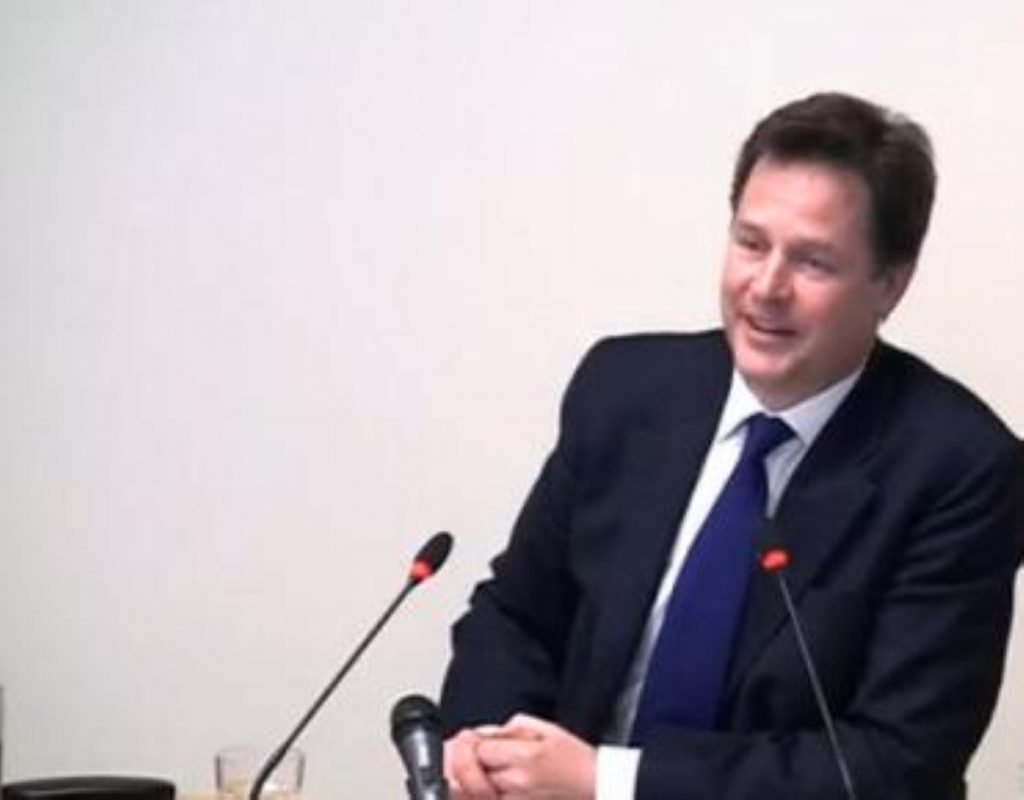Clegg ‘convinced’ by Hunt’s Leveson evidence
Nick Clegg has offered a surprisingly strong defence of Jeremy Hunt in his evidence to the Leveson inquiry.
The deputy prime minister has ordered Liberal Democrat MPs to abstain from a Labour vote calling for Mr Hunt to be referred to the independent adviser on ministerial behaviour, Sir Alex Allan.
But when asked about the way he thought Mr Hunt had handled himself during his period of responsibility for the BSkyB bid, he told court room 73: "I think he's given a full, good and convincing account to this inquiry."
Mr Clegg said he was aware that Mr Hunt was sympathetic towards News International's goal of securing a controlling stake in broadcaster BSkyB.
He said his "strong political instinct" was to protect Vince Cable's job after the business secretary was exposed in a Telegraph sting as having declared "war" on Rupert Murdoch.
The deputy prime minister talked with David Cameron at length about the government's options, he explained.
Mr Clegg said: "I remember asking questions of [civil service chief] Gus O'Donnell about whether I could be sure that the bid would be dealt with objectively and appropriately by Mr Hunt by the Department for Culture, Media and Sport, and he assured me it would be."
He later added: "I was very ready to accept assurances that the process would have to be conducted in a quasi-judicial manner and in that sense his views were irrelevant."
Mr Clegg offered a different approach to chancellor George Osborne to the intensive lobbying members of the government faced about the BSkyB takeover bid.
Mr Osborne had told the Leveson inquiry earlier this week that he would "listen politely" to submissions and not act on them.
Mr Clegg said an email sent by one of his advisers telling Lib Dem politicians to avoid commenting on the issue reflected his own views. These were that "everyone should just pipe down instead of just having these endless conversations which were entirely irrelevant and immaterial to the process in Vince Cable's office".
In the three-hour evidence session the deputy prime minister made clear he did not support "any means" by which the government could seek to legislate or regulate the press.
"I would be very wary indeed of going down the slippery slope of trying to intrude from the outside between fact, opinion and comment," he said.
"They blur constantly and you couldn't legislate to unravel them."





-01.png)